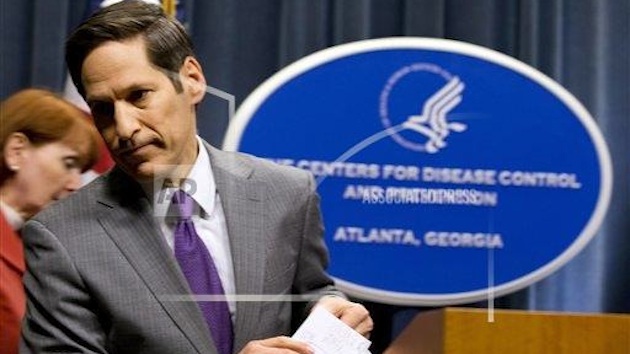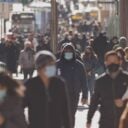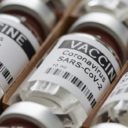

Director of Centers for Disease Control and Prevention Dr. Tom Frieden speaks during a news conference after confirming that a patient at Texas Health Presbyterian Hospital has tested positive for Ebola, the first case of the disease to be diagnosed in the United States, announced Tuesday, Sept. 30, 2014, in Atlanta. The person, an adult who was not publicly identified, developed symptoms days after returning to Texas from Liberia and showed no symptoms on the plane, according to the Centers for Disease Control and Prevention. (AP Photo/John Bazemore)
The Centers for Disease Control and Prevention (CDC) confirmed on Tuesday that a patient being treated at a Dallas hospital has tested positive for Ebola. The patient marks the first-ever case of Ebola diagnosed in the United States. Health officials said the patient — who is a male — arrived in Texas on Sept. 20 to visit family living in the U.S. from Liberia earlier this month and showed no symptoms while on the plane.
Though he would not released the patients nationality, CDC Director Dr. Tom Frieden insinuated that the individual is not an American citizen.
“The bottom line here is that I have no doubt we will control this importation, or this case of Ebola, so that it does not spread widely in this country,” Frieden said at a news conference. “It is certainly possible that someone who had contact with this individual, a family member or other individual, could develop Ebola in the coming weeks, but there is no doubt in my mind that we will stop it here.”
U.S. health officials stressed that they have been preparing since summer in case an individual traveler arrived here unknowingly infected. The CDC has been telling hospitals what infection-control steps they must take to prevent the virus from spreading in health facilities.
Passengers boarding planes in the outbreak zone are checked for fever, however, as was the case with this individual, symptoms can begin up to 21 days after exposure. The CDC also stressed that Ebola isn’t contagious until symptoms begin, and it takes close contact with bodily fluids to spread.
“Ebola is an easy virus to kill. You can kill it when you wash your hands,” Friede said. “It’s serious only because the stakes are so high.”
Texas Health Presbyterian Hospital of Dallas officials said in a statement Monday that an unnamed patient had been tested for Ebola and had been placed in “strict isolation” due to the patient’s symptoms and recent travel history.
Presbyterian Hospital says it’s taking measures to keep its doctors, staff and patients safe, and state health officials say no other cases are suspected in Texas.
The hospital had announced a day earlier that the patient’s symptoms and recent travel indicated a case of Ebola, the virus that has killed more than 3,000 people across West Africa and infected a handful of Americans who have traveled to that region.
The CDC has said 12 other people in the U.S. have been tested for Ebola since July 27, but all of these tests came back negative.
Four American aid workers who have become infected while volunteering in West Africa have been treated in special isolation facilities in hospitals in Atlanta and Nebraska. Dr. Kent Bradley, the 33-year-old Christian doctor and missionary from Texas, was cured from Ebola after receiving an experimental serum that witnesses say had a dramatic and almost immediate impact on his grave condition. However, he only received the serum, which was limited on availability, after he first passed on the dose opting instead to give it to another.
Another U.S. doctor was exposed to the virus in Sierra Leone and is now under observation in a similar facility at the National Institutes of Health. The patient, who was not identified, arrived at NIH’s Clinical Center about 4 p.m., NIH said in a statement on its website.
Friedman said that options to administer an experimental serum are being discussed now with hospital officials.
The U.S. has only four isolation units of this kind, but the CDC is attempting to ensure media that any hospital can safely care for someone with Ebola.
Ebola symptoms can include fever, muscle pain, vomiting and bleeding, and according to the CDC can appear as long as 21 days after exposure to the virus.
Jason McDonald, spokesman for the CDC, said health officials use two primary guidelines when deciding whether to test a person for the virus.
“The first and foremost determinant is have they traveled to the region (of West Africa),” he said. “The second is whether there’s been proximity to family, friends or others who’ve been exposed.” he said.
Meanwhile, Director Friedman said the U.S. has the potential to stop the spread of the virus, because of two infrastructure-related factors.
“Those are strong health care infection control that can stop the spread of Ebola and strong public health care functions,” he added. “We are stopping this in its tracks.”







